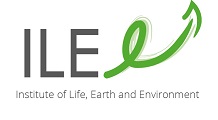Ecosystem services
The various benefits that ecosystems provide to humans freely are known as ecosystem services.
 One can distinguish four different types of ecosystem services (ES):
One can distinguish four different types of ecosystem services (ES):
- Provisioning services including the supply of food, raw material (wood, biofuels, etc.), water and medicinal resources
- Regulating services such as the regulation of air quality and soil fertility or pollination
- Supporting services that provide habitat for species or maintain biodiversity
- Cultural services that are non-material benefits to humans providing recreational, touristic or spiritual activities and inspiration
The concept of ES stems from a strong sustainability framework and its first aim was to help preserve biodiversity. Today, it is increasingly used to foster sustainable landscape management and planning, to increase well-being of local actors.
In order to achieve this, inclusive integrated valuation frameworks are developed. These frameworks combine different types of values (social, economic, biophysical), and include local stakeholders in a participatory way. A key focus at ILEE lies on the issue of social valuation of ES, assessing trade-offs and synergies between ES and actors to improve local ES governance.
Methodological approaches include ES mapping, modelling, and integrated ES assessments.
Methodological approaches include ES mapping, modelling, and integrated ES assessments.
 Institute of Life, Earth and Environment
Institute of Life, Earth and Environment
